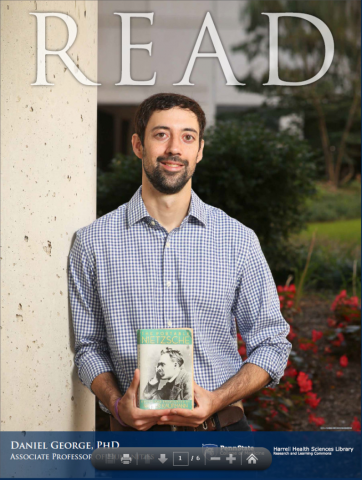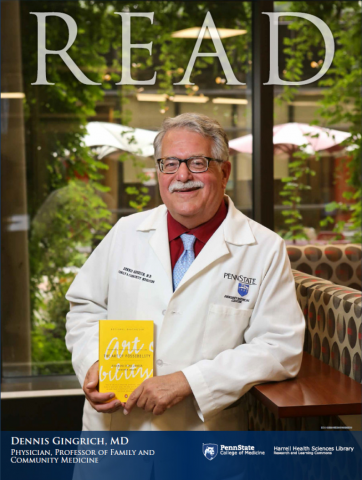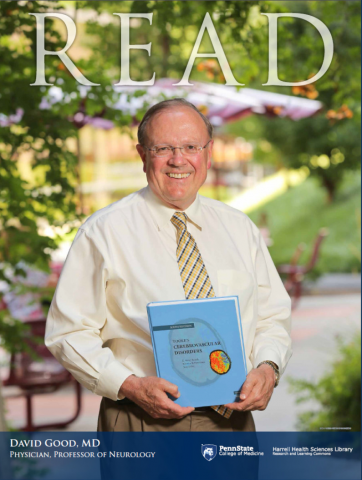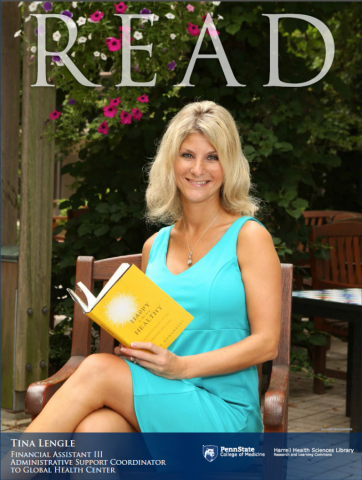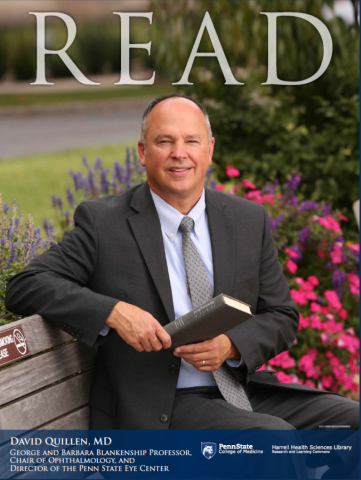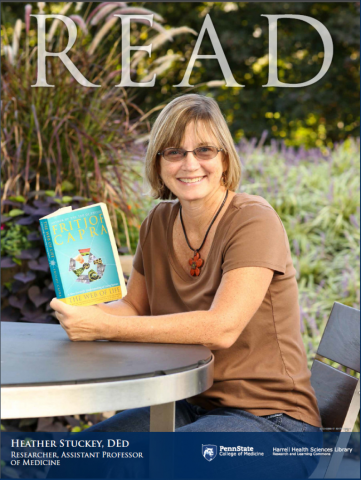Daniel George, Ph.D.
Associate Professor of Humanities
The Portable Nietzsche By Friedrich Nietzsche
The Portable Nietzsche (edited and translated by Walter Kaufmann): During my first semester as an undergrad at The College of Wooster (OH), I enrolled in a philosophy 101 course and was introduced to the writings of Friedrich Nietzsche. I was utterly blown away — the 20th-century philosopher’s aphorisms were expansive, alive, and brimming with wit, intelligence, emotional complexity, irony, poetry, contradiction, and a core humanity that resonated with me in a way no literature previously had. Reading Nietzsche’s provocative thoughts made me question everything I’d come to college believing in and nurtured habits of mind that have helped me grow into a more self-reflective person and scholar. I regret that Nietzsche has come to be unfairly associated with anti-Semitism, an odious ideology that he vigorously disavowed during his life. Even so, his work lives on as succor for any curious mind willing to think and feel deeply about their purpose in a seemingly absurd world.
To that point, I view the George Harrell library as a sort of gateway for new ideas, thoughts, and feelings. It is my most important source for finding books, films, music — all of which keep me grounded and growing. In some ways, ordering a library book is like magic; you submit an online request and in a few days you may literally be transformed by what shows up. I feel quite fortunate to have such a wonderful library only steps away from where I work every day, and I appreciate the staff, which has been enormously helpful in supporting my (ahem) eclectic interests.
Dennis Gingrich, M.D.
Physician, Professor of Family and Community Medicine
The Art of Possibility By Zander and Zander
I am delighted to have an opportunity to recommend this book, which was originally recommended to me by Dr. Travis Meyer (Class of 2010) and Dr. Aaron George, who also guided me through it. It has been transformational for me in applying to numerous life situations. It has helped me to recognize and move beyond artificial boundaries, to change the way in which I relate to people around me, to influence my world in new ways, and to open possibilities I would otherwise not have discovered. I highly recommend it.
David Good, M.D.
Physician, Professor of Neurology
Toole’s Cerebrovascular Disorders Sixth Edition
It is an honor to participate in this year's Harrell HSL READ Poster. The book that I have chosen is Toole’s Cerebrovascular Disorders Sixth Edition. This book is a culmination of a series of book editions by Professor James Toole, one of my mentors through much of my academic career. Dr. Toole was a leader in the field of stroke for many decades, and published his first edition in 1967. I was honored to provide a contribution to the sixth edition, which was published in 2010. I am personal friends and colleagues of the new editors, who have replaced the retired Dr. Toole. Dr. Toole's reference book on stroke has been a resource for generations of neurologists. It has retained a strong imprint from Dr. Toole’s dedication to quality stroke care. I have used multiple editions throughout my career as a resource for patient education and teaching.
My experience with the Harrell HSL has always been extremely positive. I have always found the staff receptive to any questions that I may have had on reference work, and they have been especially helpful in obtaining access to research journals that are not contracted directly with the library. In addition, the library supplies a quiet place to read and study away from the hustle and bustle of the rest of the institution. We are very fortunate to have such a quality library at Penn State.
Tina Lengle
Financial Assistant III Administrative Support Coordinator to Global Health Center
Happy is the New Healthy, 32 ways to Relax and Let Go, and Enjoy Life Now By Dave Romanelli
Everyday life can be so hectic at times. Happy is the New Healthy, 32 ways to Relax and Let Go, and Enjoy Life Now by Dave Romanelli is a book to help you relax and use practical solutions to enjoy life. Dave teaches you to "slow down, stress less, and smile more."
The Harrell Health Science Library has been an invaluable resource to so many individuals. This library contains a vast variety of information for our medical students, staff, and Penn State Milton S. Hershey Medical Center employees. It has also been a place of comfort to so many, almost like a home away from home. Last year, I was lucky enough to help the Harrell Health Sciences Library send three full 40’ containers of donated medical books and journals to Ghana Africa to support MountCrest University's startup of their new Medical School. Everyone at the MountCrest was so appreciative and grateful for all the wonderful resources. I have also been fortunate enough to contribute to several of the Global Health Center displays at the library. The Harrell Health Sciences Library has a special place in so many of our hearts.
David Quillen, M.D.
George and Barbara Blankenship Professor
Chair of Ophthalmology, and Director of the Penn State Eye Center
To Kill a Mockingbird By Harper Lee
“Which fictional book character do you most admire and why?” In the Fall of 1985, I was asked this question during my prospective medical student interview at the Penn State College of Medicine. Like many who have faced this familiar interview question, I discussed Atticus Finch from To Kill a Mockingbird by Harper Lee. There is much to admire about Atticus Finch: wise, humble, courageous, compassionate, empathetic. Highly desirable characteristics embodied by one man who stood up for justice in the face of overwhelming adversity. My faculty interviewer must have valued these qualities more than the originality of my response and so began my 30 year association with the Penn State College of Medicine.
I have frequented the Harrell Library on a regular basis during the course of these past three decades. As a medical student and ophthalmology resident, the Harrell Library was a quiet place to prepare for an examination or learn about the problems affecting my patients. As a faculty member, I relied on the expertise of the dedicated library staff to explore potential research topics and facilitate access to educational resources for the Department of Ophthalmology. I have seen the Harrell Library evolve from a repository of books and journals into a dynamic center that serves to advance the mission of the Penn State College of Medicine.
Heather Stuckey, D.Ed.
Researcher, Assistant Professor of Medicine
Web of Life By Fritjof Capra
I selected the book, Web of Life, by Fritjof Capra, 1982. Capra introduced me to the rise of systems thinking, which was not yet a popular concept in health care at the time. His scientific understanding of living systems, the theory of complexity, and chaos theory was accessible to read. It led to thinking about how organisms, social systems and ecosystems are connected, and stood in sharp contrast to the paradigms of mechanism and linearity taught in classrooms. I have more underlines, exclamation points and notes in this book than any other. It is a mix between a graduate text of systems thinking and non-fiction mystery. Capra talks about different points of instability at which dramatic and unpredictable events take place, where order emerges spontaneously and complexity unfolds. One such example is the bifurcation point, a threshold at which a dissipative structure may either break down or break through to one of several new states of order. Although he uses the metaphor of a branch and trees, that image instilled a sense of curiosity to wonder, “how have bifurcation points in life affected my experiences, through small fluctuations, to go one path or another.” This incited my interest in dynamic health systems change, behavioral interventions as bifurcation points in the management of diabetes, and transformational learning that transcends black/white thinking.
While a kindergartner, I went to the public library and checked out the maximum number of books. As a child, the love for books and new points of view encouraged creativity and an excitement for travel, which continues throughout my life. The Harrell library has helped me and my students with literature reviews and manuscripts. We are working collaboratively to submit a literature review on best lifestyle practices for diabetes, and we have included a librarian on the introduction section of a grant application for PCORI to explore mixed methods research in patient-centered care. I encourage students to contact the library to determine the best keywords for a medical literature search, or to find a resource of which they do not have access. I have also used the library to help me with EndNote, and to gain access to articles and books through Iliad. Thank you, Harrell, for propagating the love of literature and learning!
